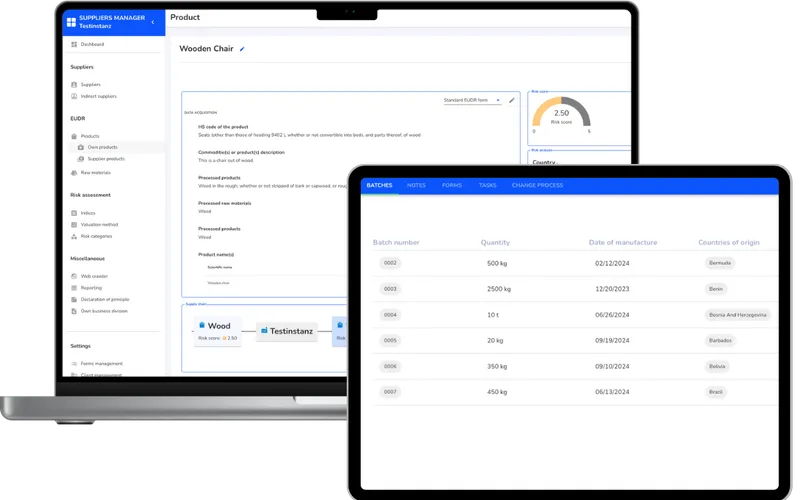The EU Deforestation Regulation (EUDR): Deforestation-free supply chains for the global protection of forests
The EU Deforestation Regulation (EUDR) comes into force as a new requirement for companies to ensure that products placed on the European market do not contribute to deforestation. Companies that import or export certain raw materials, such as wood, cocoa, coffee and palm oil, must ensure that they come from deforestation-free areas.

The EUDR obliges companies to implement measures such as risk analyses, traceability of the above-mentioned raw materials and comprehensive documentation. This affects a large number of actors in the supply chain, who must contribute to sustainable production and supply practices by complying with these regulations.
Companies that violate the regulations face fines of up to 4% of their annual turnover in the EU as well as the confiscation of the products concerned. Member states must carry out regular checks and audits to ensure compliance with the regulation.










































